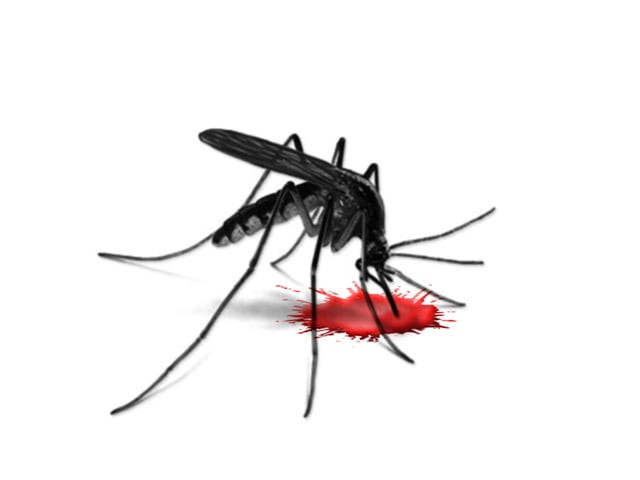Dengue threat: To keep the fountains flowing, or not?
CDA decision receives mixed reaction.

The closing of all the capital fountains by the Capital Development Authority (CDA) to avoid the spread of dengue, has received a mixed response from the experts.
While the measure alone does not assure complete riddance from the vector, the “short term measure” would need to be supported by efficient draining of the fountains and timely fumigation of the breeding hotspots in the capital.
Talking to The Express Tribune, Dr Muhammad Saleem Rana, vector control expert and Associate Professor at Health Services Academy (HAS) termed it as a non-significant step being taken by the CDA.
“This cannot even help in control of the outbreak by one per cent,” he said.
The reason, he said, was that mostly the water in the fountains was flowing, not stagnant, therefore these places cannot serve as a breeding ground for the dengue mosquito. Besides, people usually do not sit very near the fountains.
“Within the heart of the capital and its suburbs a number of breeding grounds were found during a survey conducted in March and April this year, therefore these breeding points need to be targeted,” he said.
Sharing the details of the survey he said that the very active breeding points of dengue mosquito were found near Bari Imam, Rawal Lake, sectors G-6 amd G-7 and a major one in a workshop of CDA situated in sector H-8.
“This workshop has many old tyres which provides very favourable conditions to the mosquitoes to breed. The area is also used as a resting
place for many people therefore it is considered a dangerous spot for the spread of dengue,” he said.
There is a need to identify such points and fumigate them as soon as possible, he suggested.
Meanwhile, a World Health Organization (WHO) expert in medicines, Dr Khalid Saeed said that closing the fountains can help avoid the spread of dengue given that they have a proper drainage system. Otherwise, a brief spell of rain will provide sufficient water to these mosquitoes to breed in, he said.
A health expert working with a government organisation, told The Express Tribune that closing of the fountains is a short-term measure rather counterproductive to curb the spread of dengue mosquito; the government needs to chalk out a long-term strategy.
Explaining the stance of the civic agency, CDA’s health director Dr Hassan Urooj said, “It is true that the dengue mosquito does not breed in flowing water, but what if there is a power outage. Besides, most of the fountains do not operate on a round-the-clock basis, providing stagnant water especially early in the morning.
Malik Aulya, Deputy Director-General Environment said the authority has made all the necessary measures to drain out the water from the fountains in a timely manner and have all the resources to continue this practice till the season ends.
Published in The Express Tribune, September 17th, 2011.



















COMMENTS
Comments are moderated and generally will be posted if they are on-topic and not abusive.
For more information, please see our Comments FAQ